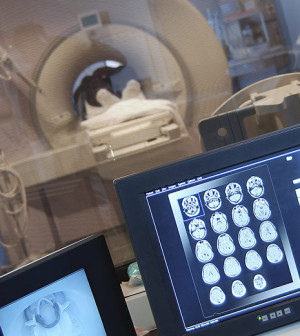- 8 Ways to Increase Dopamine Naturally
- 7 Best Breads for Maintaining Stable Blood Sugar
- Gelatin vs. Collagen: Which is Best for Skin, Nails, and Joints?
- The Long-Term Effects of Daily Turmeric Supplements on Liver Health
- Could Your Grocery Store Meat Be Causing Recurring UTIs?
- Are You Making This Expensive Thermostat Error This Winter?
- Recognizing the Signs of Hypothyroidism
- 10 Strategies to Overcome Insomnia
- Could Artificial Sweeteners Be Aging the Brain Faster?
- Techniques for Soothing Your Nervous System
Health Highlights: Nov. 12, 2013


Here are some of the latest health and medical news developments, compiled by the editors of HealthDay:
Women Less Likely to Have Orgasm During Casual Sex: Study
Women are less likely to have orgasms during casual sex than when they’re in committed relationships, according to new research.
One study of 600 college students found that women were twice as likely to reach orgasm from intercourse or oral sex in serious relationships, compared to hookups. The findings were presented at the annual meeting of the International Academy of Sex Research and at the Annual Convention for Psychological Science this year, The New York Times reported.
Another study of 24,000 college students found that about 40 percent of women had an orgasm during their most recent casual encounter. In comparison, 75 percent of women had an orgasm the last time they had sex while in a committed relationship.
“We attribute that to practice with a partner, which yields better success at orgasm, and we also think the guys care more in a relationship,” study author Paula England, a New York University sociologist, told the Times.
—–
ABC News’ Amy Robach to Have Breast Cancer Surgery
ABC News correspondent Amy Robach said Monday that she has breast cancer and will undergo a double mastectomy and reconstructive surgery this week.
Her announcement comes a month after she underwent a mammogram for a story on “Good Morning America.” The 40-year-old mother of two was chosen for the assignment because she’s at an age when it’s recommended that women check regularly for breast cancer, the Associated Press reported.
A few weeks after the mammogram, Robach learned she had breast cancer. Following Thursday’s surgery, she will find out what further treatment she may require.
Robach said she was initially reluctant to have the public mammogram, but decided to do it after “Good Morning America” anchor Robin Roberts said it would be worth it if the story saved one life, AP reported.
“It never occurred to me that life would be mine,” Robach said.
—–
Prepared Sandwiches, Salads Recalled by California Caterer
A California catering company is recalling more than 90 tons of ready-to-eat sandwiches and salads after 26 people in three states were sickened by E. coli, the USDA’s Food and Safety Inspection Service says.
Glass Onion Catering is recalling nearly 182,000 pounds of salads and sandwich wraps that contain cooked chicken and ham. They were produced between Sept. 23 and Nov. 6 and sent to distribution centers in Arizona, California, Nevada, New Mexico, Oregon, Utah, Washington and Texas, the Associated Press reported.
The company supplies food to Trader Joe’s, Super Fresh Goods and Delish, according to the Contra Costa Times.
A full list of the recalled products is available on the Food and Drug Administration website, the AP reported.
—–
Meningitis Outbreak Declared at Princeton University
New Jersey health officials have declared a meningitis outbreak on the Princeton University campus, where there have been six confirmed and one suspected case of the disease since March.
The possible case involves a male student who developed symptoms on Saturday and is in hospital. Five of the six confirmed cases involved students and all the patients have recovered, the Associated Press reported.
The outbreak was declared in an effort to raise awareness on the campus, according to state health officials.
They said meningitis can be spread through kissing, coughing or lengthy contact. Symptoms include headache, fever, vomiting and rashes, the AP reported.
Copyright © 2026 HealthDay. All rights reserved.










